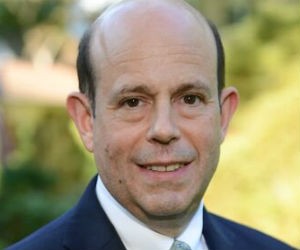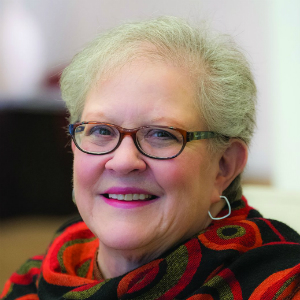The information provided is done so with the understanding that the writers and respondents are not engaged in rendering legal, accounting or other professional services or advice through the distribution of the contents. If expert assistance is required, the services of a professional should be sought and contracted. The views expressed are the writer's and respondent's own and may not reflect the views of Meetings Today, its owner and publisher. Additionally, some comments have been edited for space, style and clarity. We hope in so doing that we have not changed the intent.
As part of the Oct. 2017 edition of Friday With Joan, titled "Planning for Contingencies at Meetings," I reached out to two hospitality attorneys and a meeting planner whose Orlando meeting was directly impacted by Hurricane Irma. Immense thanks to all three colleagues who took time to respond. They are all busy professionals and their dedication to making the industry safer, smarter and better is appreciated beyond words.
Respondents:
Joshua L. Grimes, Esq. (JG), Grimes Law Offices, LLC. Recognized legal expert in the meetings and events industries with over 25 years’ experience. Noted speaker on meeting contracts, risk management and dispute resolution for industry organizations and private corporations. Education: JD, The George Washington University; BA, University of Pennsylvania. Email: GrimesJ@GrimesLaw.org
Tyra Hilliard, Esq., Ph.D., CMP (TH), Attorney & Professor, with 25 years in the meetings industry as a meeting planner, CVB salesperson, catering manager, association executive, attorney, speaker and professor. Learn more from her at www.DrTyra.com or @DrTyra.
Diane Ramos, CMP (DR), Director, Meetings, Professional Development & Education
NAIFA, certified senior level management professional with more than 20 years of experience in the meetings and hospitality industry. She received her BBA in Marketing from Western Connecticut State University in Danbury, Conn. You can reach her at https://www.linkedin.com/in/dianeramoscmp/ and @Compactwoman.
Q1. We know that there are “seasons” for some “acts of God” such as we’ve recently seen with hurricanes Harvey, Irma, Jose and Maria. We know that there are times of year and areas of the U.S. where tornadoes are more likely. We also know from what climate scientists are saying that the expectation for “acts of God” may increase because of climate impact. After the latest round of hurricanes, in what ways should planners consider contingency planning beginning with destination and site selection?
Responses:
JG: Planners need to understand the risks of meeting in particular destinations at certain times of the year. For example, if you meet in South Florida in September there is a heightened risk of hurricanes. If you meet in Minneapolis in January it will be very cold. And if you meet in Scottsdale in July it will be very hot. Depending on the Force Majeure/Excuse of Performance clause negotiated into a contract, those predictable weather patterns may not allow a group to cancel an event without liability, except if a major and unusual weather event happens such as one of the recent extraordinary hurricanes.
A planner needs to understand that. A planner also needs to consider whether it’s suitable for her group to meet in a particular destination during periods of extreme hot or cold weather, even if there is no force majeure occurrence. Rates may be very attractive during “off-season” times, but if a group’s members would not adapt well to extreme hot or cold, the discount wouldn’t be worth it.
If a meeting goes forward, a contingency plan is a must. This should include emergency communications and consideration of evacuation methods and safe shelters. For various reasons, it may be negligence for a planner to prepare for a meeting without creating a written contingency plan and sharing it with those who would help execute it.
TH: As someone who lives in hurricane country and was affected by Hurricane Matthew last year and Hurricane Irma this year, I’m reticent to say, “Avoid hurricane country Aug. – Nov.” because of the financial crush that puts on the hospitality industry in those areas. But destination choice should be considered and risk mitigation measures put in place. If you are planning a meeting in Florida in October, have event cancellation insurance and a back-up plan. Get Visit Florida’s additional free event cancellation http://www.visitflorida.com/en-us/florida-meeting-planners.html insurance. Have an evacuation plan and easy mass communication method—with attendees, vendors and staff. Check your force majeure clause to make sure it allows you to terminate without liability before the hurricane actually hits to give your group time to move or reschedule the meeting.
DR: Yes, with what we have just seen with the “acts of God” situations we are already looking at what additional contingency plans do we need to discuss when choosing certain locations. In our recent cancellation had the “act of God” taken place one week to two months out we would have certain questions to ask, like “how much damage was there?” and “can repairs be made in time to fully execute the meeting in time?” A week out, when a state of emergency was called while I was already on-site and we looked at what percentage of people were arriving/departing, we had to consider if travel be advisable during those times.
Q2. When contingency planning is considered, the impact on various professions–journalists, emergency responders, including the National Guard, utility workers, medical personnel from the area/s impacted and around the country in response--have to be considered.
- What can planners try to negotiate when it comes to contractual contingencies for particular professions? (I’m writing about knowing your audience, such as how many may be part of the National Guard Reserves.)
- What might hotels consider given what we know about emergency response when it comes to attrition or stopping the meeting?
Responses:
JG: If a planner is aware that there are specific or unusual factors pertaining to guests [see Joan’s blog for questions to ask] that might affect the attendance at a meeting, the planner should try to allow for those factors in the meeting contract. The force majeure/excuse of performance clause could already cover some contingencies, if it allows cancellation if it's "inadvisable" to go forward with the meeting, provided that inadvisability is defined to include the cancellation of a significant percentage of prospective attendees.
In addition, if attendees would be impacted by a specific occurrence, the possibility of that occurrence should be covered in the contract. So, for example, if a meeting group is a union organization, in the event of a strike at the venue cancellation without liability should be allowed because the attendees would refuse to cross a picket line. Similarly, if there is a disaster not affecting the meeting venue but affecting the prospective attendees and causing them to cancel their attendance due to work responsibilities, the contract should either allow the group to cancel, or alternatively to proceed with the meeting with no attrition damages.
Hotels should waive attrition or cancellation if an emergency occurs, particularly if the force majeure/excuse of performance clause is triggered. A properly written clause would allow the group to terminate performance without liability.
TH: Meeting facilities can be much more sympathetic when you have specific information as to how many of your prospective attendees are National Guard Reserves or similar. If that information isn’t known, you should at least have in the force majeure clause the opportunity to terminate the contract without liability if an emergency “prevents at least x% of your attendees from attending the meeting.”
Another useful clause (and one I saw in a recent Florida contract for a meeting over hurricane season) is a “partial force majeure” clause. Ideally, this will say that if all attrition and performance clauses will be waived if the group decides, despite a force majeure incident, to hold the meeting.
DR: It is a good idea to include that. Our audience is 1/3 property and casualty insurance agents, and in most years since Hurricane Katrina while our conference has gone on in another part of the country, other areas have been affected, causing attendees to cancel and our total hotel room nights faced attrition. In those years we had submitted claims to our event insurance company. In 2017, we had attendees from Texas affected by Hurricane Harvey in August cancel for our September conference in Florida. When we were facing what to do about our conference in Orlando when Hurricane Irma was forming, we again thought about our Florida members and how they needed to be with their clients in Florida.
I think this is the start of the discussion where we all need to come to the table to discuss: In an emergency situation, how can we all work together to go from hospitality/engagement and entertainment businesses to help assist the state/local community when an Act of God is happening. What kind of help can we get from our CVBs [aka DMOs] to lead us by working together? We need their guidance in a local/state capacity to communicate with meeting planners needing to cancel/avoid bringing attendees into a state of emergency, and hotels who have the facilities that state and local authorities/residents need to help them “weather the storm.”
In our situation, a state of emergency had been called for 67 counties in Florida for the next seven days. The next day we cancelled the meeting. In our case, Orlando is higher ground for Southern Florida. As we were cancelling, news reports were popping up about 650,000 people needing to evacuate Miami. Our association leadership said by cancelling our meeting we are keeping 1,300 people from coming into the state, and therefore not taking up resources/seats on a plane/space on the road/gas that Floridians needed for survival. In the end, television and film crews used our sleeping rooms and the hotel was able to shelter two large nursing home communities. We didn’t get to this easily and I think we all could have used help working together. [Diane shared with me her minute-by-minute record of the discussions and decision-making with her association’s leadership and with the hotel sales people. Her poise and ability to manage this while, I know, wondering if she were going to be able to wrap up the contingency issues and safely make it home, were exemplary.]
Q3. There are meetings industry attorneys who advise the term “commercially impracticable” be included in termination or “impossibility” clauses. Given that some meetings had to decide days out of the start of their meetings, when the planners and others were already on-site, to stop their meetings, OR now have to decide if the infrastructure in Puerto Rico or the U.S. Virgin Islands will be up to supporting their meetings. including whether mold will be a factor impacting those attending …
- Would hotels accept “commercially impracticable?” If so, why? If not, why not?
- If a meeting continues and puts their staff, vendors and participants in harm’s way because a hotel or convention center refused to stop the meeting, will there eventually be case law to decide what was the smarter decision? (This is to avoid you all saying “it depends!”)
Responses
JG: The contractual language is something that must be negotiated. There is no reason why a hotel wouldn’t accept a term like “commercially impracticable” or “inadvisable.” It’s important to include a definition of those terms in the contract to help with interpreting when the clause might be invoked.
A meeting should never come to that point. If it’s so dangerous, or the threat of harm so real, that the staff, vendors or participants would be in harm’s way, the planner should terminate the meeting and worry about possible monetary damages later. In any event, a properly written clause would allow for termination if the threat of a force majeure event makes proceeding with the meeting “inadvisable,” so the planner would have the right to cancel without liability in proper circumstances.
TH: There were six attorneys on the APEX Contracts Panel. We were able to agree on the term “impracticable,” but not “commercially impracticable or any form of inadvisable.” Yes, impracticable is a grey area, but it’s important to remember that, as long as the force majeure clause is written in a reciprocal way, it applies to both hotel and the group.
Hot areas for litigation are negligent hiring and negligent security. It would not surprise me in the least if there were lawsuits to come on failure to exercise due diligence.
DR: I think they should. I’m not an attorney, nor do I play one at my job. However, those that are writing and submitting clauses are not usually the first/last ones on the ground starting or ending a meeting.
It would be great to say there is precedence (However, that means someone has gone through what we just did and it did not have a good ending, such as lawyers were hired and it went to court or arbitration) already to help in this situation, as we had to stop our meeting as staff/vendors and VIPs were arriving. I would hope no one has to get to that point. Again, because this “weather” is happening more and more all over, I think it’s up to the industry (hotels, CVBs and organizations) to work together for the best possible outcomes in the locations that we hold meetings in. Many of us are holding corporate social responsibility/volunteer events during our meetings to offer a helping hand to the city we are holding a meeting in. Shouldn’t that helping hand extend when the state/city needs it the most, in an emergency situation?
IF you are up to it ... one more question:
What will you advise clients to do, or what will you do differently, now given what we’ve just experienced and will continue to experience?
- because of infrastructure instability?
- because of hardship on those who staff hotels who may be homeless for some time?
RESPONSES
JG: I would advise planners and hoteliers to inspect their facilities after a hurricane or similar bad weather event, to make sure all facilities are usable and safe. The hotel/venue would have an affirmative duty to bring the facilities to an acceptable level. If that can’t be done given the time between a weather event and a meeting, the group should be able to cancel, or at least proceed without attrition damages, and possibly get a discount.
Also, recent events demonstrate that a proper force majeure/excuse of performance clause should NOT require that the cancellation right be invoked within (for example) 20 days of the force majeure occurrence, as some contracts require. Such a time limitation does not allow the venue sufficient time to prove that it can get its facilities back up and running. For example, if a planner had to cancel a meeting within 20 days of a recent hurricane or lose the right to cancel without liability under the force majeure clause, the planner would not be able to wait things out to see if the hotel could adequately resume its operations before the meeting. In such event, both the group and the venue would lose out.
DR: We hope that part of the reason our property had the disclaimer about the hotel not being up to full service was because we cancelled and they were letting their staff go home and make preparations for the hurricane. In checking in on how some of my hotel contacts fared the hurricane, some said they needed an extra day or so before they could get out of their neighborhoods. I would hope the hotels would be in a position to help those who are homeless. [And to this I say a hearty “AMEN!” People first. Always.]
Click here to view additional content in the 10.06.17 Friday With Joan newsletter.







